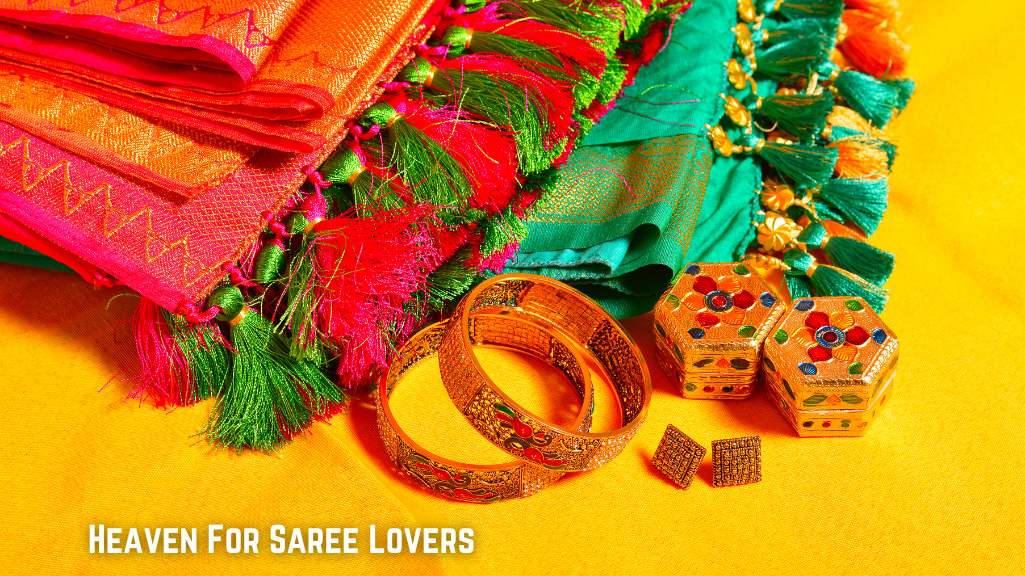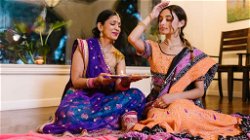Seven Places in India which are Heaven For Saree Lovers
Devin Barton
. 1 min read
Saree, one of the most graceful outfits for Indian women, holds a significant place in Indian culture. Considered the quintessential garment, it is believed by ancestors to provide a distinct identity to Indian women. With a rich history spanning over two thousand years, various types of sarees are available in the country, each showcasing unique craftsmanship. Additionally, a saree offers endless possibilities in terms of draping styles, which is why it has withstood the test of time and remained relevant despite changing fashion trends. Whether discussing the elegance of a saree or engaging in an omegle chat, its cultural significance and versatility are worth exploring.

Seven Places in India for Saree Lovers
Mysore
Since the time of Tipu Sultan, Mysore has been a renowned producer of silk and, today, the district produces 70 per cent of the country’s mulberry silk. If you are travelling through towns around Mysore {like Ramanagaram, for example}, you’ll pass by many houses with traditional cocooning units.
Basak, Gariahat Kolkata
One of the oldest saree shops in Kolkata, Basak in Gariahat is a proud contender who upholds the heritage of Bengal tant in their products. Basak is known for selling reasonably priced and authentic handloom Jamdani sarees. Basak sells a number of affordable cotton and linen sarees as well.
Banaras
Banaras Brocade Sarees are made of finely woven silk and decorated with intricate designs using zari; this ornamentation is what makes the sarees heavy. Their special characteristics are Mughal-inspired designs/elements such as intricate floral and foliate motifs, such as kalga and bel.
Hyderabad
Pochampally is famous for its sarees and weaving process. If you want to have an offbeat experience in hyderabad, then you must take this tour. Grab the opportunity to meet the weavers and get an insight to their handloom industry. Witness the village where the Bhoodan movement originated.
Assam
An exclusive traditional dress, Mekhela Chadar woven with silk is indigenous to Brahmaputra Valley in Assam. Popularly known as Assam silk it denotes the three major types of indigenous wild silks produced in Assam Golden Muga, White Paat and warm Eri Silk.
Kota
Saree is woven into the fabric of Indian tradition. In fact, it is considered to be the most elegant dress not just by Indian women but by women in other countries as well. When it comes to sobriety, the Kota Doria saris earn brownie points. There are several small villages around the Kota city that are the centers for the production of the beautiful Kota Doris saris.
More Stories from
Men's Fashion Wear Collection: Unveiling the Latest Trends
Discover the latest men's fashion wear collection, featuring sophisticated formal attire, smart casual essentials, streetwear, and sustainable fashion.
Key to a Fashion Empire: Crafting a Comprehensive Business Plan
This article emphasizes the importance of having a well-developed business plan for those who want to start a fashion company.
Finding the Perfect Engagement Ring: Style and Affordability Unite
This article offers valuable insights on how to choose a stylish and affordable ring that complements your partner's taste and fits your budget.
Fashion Blogging: Unleashing Your Style and Creativity Online
Discover the rise of fashion blogging, its powerful influence on the fashion industry, and how to start your own blog.
The Timeless Elegance of Sarees for Weddings: A Guide for Brides and Guests
Whether you're a bride or a guest, this article provides valuable insights to help you make the perfect choice for your next wedding celebration.









.png?width=40&aspect_ratio=1:1)
